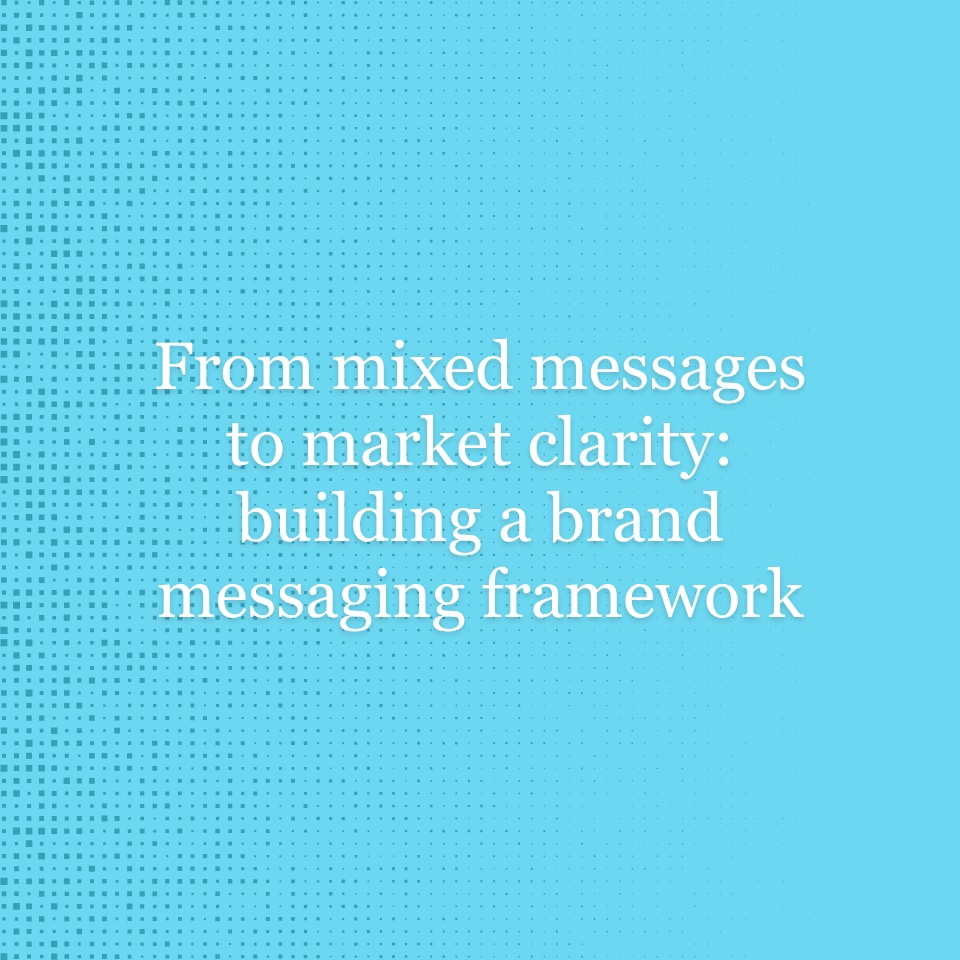Allow me to let you in on a little secret:
One of your most powerful brand assets is sitting right in front of you. Or maybe behind, or to the left or right depending on your office layout. Did you spot them?
No, we aren't crazy. Yes, the brand asset is a person. In fact, it’s a lot of people; it’s everyone sitting in your office right now. And the dude who is on vacation. Lucky duck.
Some of the most under-rated, overlooked brand assets are your employees. But many companies don’t understand how to harness the positive influence employees can have on a company's culture, brand, and bottom line.
Many companies turn to employee engagement to promote positive workplace culture and job satisfaction, but these efforts don't typically focus on empowering employees as brand stewards. An office ping-pong tournament might be fun in the moment, but it will not achieve employee brand engagement and the resulting brand growth.
Scott Bedbury, a legendary brand strategist who helped mold Starbucks and Nike into some of the largest, most loved brands of the common era, wisely said “A brand is only as strong as the weakest personal point within an organization" [1].
When employees feel like they are a part of a brand that's making real change, they are likely to work harder and feel more fulfilled by their work. This creates a cycle of self-sustaining employee engagement! What’s more, the company saves money on marketing and advertising when its products have inherent meaning and value.
In his book entitled "Hit Refresh," Microsoft CEO Satya Nadella details the evolution of the Microsoft Brand into a single branded house – a change that relied on a significant mindset shift on behalf of Microsoft employees. He states that "No product or policy works if it fails to reflect and honor the lives and realities of people -- and that requires those who design the product or the policy to truly understand and respect the values and experiences underlying those realities" [2]. Empathy is a central ingredient of Microsoft's mission of empowerment.
That free lunches and ping pong tables drive meaningful employee engagement is a myth. A recent Gallup poll points to a sizable knowledge gap—finding that less than half (41%) of all employees believe they know what differentiates their company’s brand [3]. According to another recent study by Tenet Partners, only 28% of employees strongly agree that they know their company’s brand values, and only 20% of employees strongly agree that leadership communicates how employees should live their company’s brand values [4]. Employees who don't understand what makes their company, and their product special cannot do their part in strengthening the brand story. There is a huge opportunity for companies to tap into these underused brand assets.
You might be thinking, what does employee-engagement have to do with brand strategy anyways? And the answer is: it has everything to do with it. You could have an inspiring brand story, great products, and a sleek, modern website, but without employees who both understand, and work in alignment with your brand story, your brand won't reach its full potential. You can only gain so much from telling a story...You have to teach people how to live the story every day at work [5]. True success is realized when your employees build the brand story into your products from the very beginning.
Ikea presents an example of how brand strategy and employee engagement can be aligned to drive brand love –for customers and employees alike.
Ikea's commitment to the creation of a strong employer brand starts with purposeful hiring. Employees interviewing for a position at Ikea are asked to bring in a photo of their own living room, and discuss how the room inspires them, and improves their life. This simple exercise allows the interviewer "to quickly identify people who have a real passion for home furnishing and good design, and how they can make a difference in customers' lives"[6]. Ultimately, these are the people Ikea hires. Because they already share Ikea's core brand values, they can immediately contribute to the brand story, whether they work in marketing, or as a customer associate.
Ikea's employer branding extends beyond hiring, into employee development practices that align strongly with the external brand purpose. Each employee is given the power to build a better life at home for him or herself, through Ikea’s employee development programs and an egalitarian corporate structure that gives entry level employees the opportunity to quickly move up into leadership roles.
How do your employees' everyday actions and interactions contribute to your corporate brand?
One of our proprietary processes at Northbound, Brand Compass, identifies who a brand targets, what business it is in, and why it’s in that business. This tool is equally as important in guiding internal employee values/work as it is for driving external positioning and brand identity work. In the era of corporate transparency, what goes on inside your company greatly effects your image externally. As an example, in our recent engagement with Aegis Living, we developed a Brand Compass that continues to inspire employees to transform expectations about aging and make every day exceptional for its senior residents.
Having a clear compass of what you stand for as people and as a brand can bring higher employee satisfaction and inspiration, more meaningful products, greater brand love, and huge business returns.
Power to the people! Together, we can move mountains. Or at least your bottom line.
We would love to help you tap into the power of your employees to grow your brand. Shoot us an email – we can’t wait to get started.
[1] Scott Bedbury, A New Brand World
[2] Satya Nadella, Hit Refresh
[3] Gallup Partners, “Failed Brand Ambassadors”
[4] Tenet Partners, “Brand Culture at the intersection of brand and HR”
[5] Ty Montague, True Story: How to Combine Story and Action to Transform Your Business
[6] Randstad Group, "Standing out: insights from celebrated employer brands"

Piper Donaghu | Strategist




